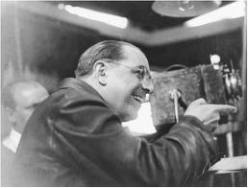Once upon a time, there was a naughty little boy named Timmy. Timmy was Webster’s own definition of a brat – spoiled without a trace of gratefulness in his demeanor, and a hateful bully to his parents at that. Finally, little Timmy pulled the last ma ‘n’ pa hamstring, and hit his father over the head with a plastic doll, bruising him. That was it – violent little Timmy was going to juvy, after countless beatings and bruises liberally administered by him. Or was he? Perhaps not, for you can imagine little Timmy’s parents’ confusion when the friendly neighborhood police handcuffed not the rugrat, but the plastic doll instead.
Author Archives: John Henry Tringali
A Beverage for Everyone, A Drink for Anyone
This is a short story that I wrote last year. I would like to thank the VR staff for allowing me to publish it here, and please leave any constructive criticism that could potentially help me improve my writing.
A depressed look was pasted across the face of the individual whom not too many knew. He was mysterious, mystic, and held the atmosphere of a recluse, of an aloof man – and yet he was completely open, like a deep, deep swimming pool ready for business, ready to share his sorrows with anyone. Near the room he sat, the room of the metro driver, with a small white towel wrapped around his thick dark head, and a cooler filled with semi-refreshing beverages, ready to make any willing customer all-the-more thirsty. This was the young man who you will never know, but will always see, wherever you go on the metro. Continue reading
Aggressors and the Citizenry – Theories on Anarcho-Capitalist Revolution
Broadness is fairly spread throughout ideologies and worldviews, with each ideology having their own “school,” or “branch.” Very few worldviews have been capable of escaping this kind of disorienting divide, a separation creating quarrels between individuals due to the fact that their sociopolitical ideologies can be expanded so broadly. The reason for this is quite simple really – these “ideologies” and “worldviews” that I speak of all target the state as a way to control the masses into doing what these individuals believe is best (or worst) for the world. Governance, as anyone with a basic understanding of political science knows, can be done in a variety of different ways, due to the fact that the state itself is a monopoly – an institution that has a monopoly on whatever it chooses through the “ideologies”. Therefore these ideologies which I speak of only vary on the level of violence they want the monopoly to utilize – this is what creates the “schools” and the “branches.” Continue reading
Austrian School Film Theory
I think that it’s quite obvious that libertarianism is much more of a worldview now than anything else. Long gone are the days when libertarianism and its good friend the Austrian School were known as simple and respective political and economic philosophies. As of today, Austro-libertarianism digs so incredibly deep in various matters of sociology and the everyday life of its proponents that early thinkers like Menger and Bohm-Bawerk would be astounded if exposed to the product of its evolution.
Not too many people however hold something like the Austrian School, an economic social science, to be related to a prominent branch of human art such as film. Indeed, the Austrian School may actually represent the driving force behind movies. I am under the impression that both praxeology and Austrian spontaneous order theory are what can be used to pull a viewer into the picture, not through the economic actions of the characters of course, but by applying these theories to the characteristics of the characters themselves.



